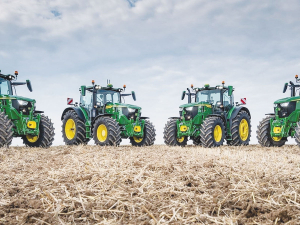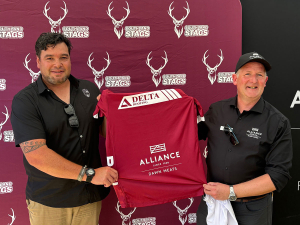In a move that will make many other farm machinery companies sit back and scrutinise their marketing budgets, global giant John Deere has announced that it will withdraw from the November 2024 SIMA Event held in Paris.
This event is described as the international exhibition of technologies and solutions for efficient and sustainable agriculture.
JD says one of the main reasons for its decision not to attend is to allow a greater focus on country-specific dealer and customer events throughout the marketing year, rather than concentrating a large amount of its budget over just a few days.
“Covid-19 has changed the event landscape and the way customers want to interact with us is also evolving,” company sources have said.
The statement goes on to note that trade shows are a long-established way of engaging with farmers and contractors, but John Deere is exploring alternative communication channels that combine both digital and face-to-face activities. It also adds that the increasing emphasis on digital technology within farm mechanisation, the traditional way of interacting with customers may not be the most effective use of resources.
The move away from large international events could lead to a greater emphasis on supporting dealers at local shows and demonstrations. John Deere also makes a pointed reference to the conflict between SIMA and EIMA, which stretched both the resources and patience of many exhibitors.
The company noted that in the future it would “welcome international trade fair organisations to review their current timetables to allow greater flexibility for other promotional activities”.
One wonders if this is a realignment of the way machinery companies will do business in the future. This is at a time when large trade type shows have come under increasing pressure from exhibitors complaining about the increasing costs of attending such events, and from visitors who are looking to see tractors and machinery in action.
Despite voicing these grumbles, the conservative nature of the industry continues to see many companies turn up at such events under the fear of missing out (FOMO), then post-event, wondering if it really was worth the time and cost of attending.
In New Zealand, manufacturers are questioning the need to spend the whole month of March attending regional field days in Northland, the lower north Island and the South Island. Then, nine weeks later, attend the National Fieldays event in June.
Surely, it is time to look at re-evaluating the field days calendar to perhaps mimic the
South Island landscape, when there are alternative events each year in Gore and Christchurch.
Is there a likely need for the two North Island events to alternate and the national event to become biennial?



















